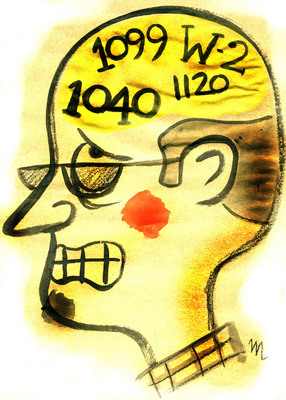- MENU
- HOME
- SEARCH
- WORLD
- MAIN
- AFRICA
- ASIA
- BALKANS
- EUROPE
- LATIN AMERICA
- MIDDLE EAST
- United Kingdom
- United States
- Argentina
- Australia
- Austria
- Benelux
- Brazil
- Canada
- China
- France
- Germany
- Greece
- Hungary
- India
- Indonesia
- Ireland
- Israel
- Italy
- Japan
- Korea
- Mexico
- New Zealand
- Pakistan
- Philippines
- Poland
- Russia
- South Africa
- Spain
- Taiwan
- Turkey
- USA
- BUSINESS
- WEALTH
- STOCKS
- TECH
- HEALTH
- LIFESTYLE
- ENTERTAINMENT
- SPORTS
- RSS
- iHaveNet.com
Victor Davis Hanson

There is class warfare going on in this country -- but it's not against the established rich. It's against those who are trying to become wealthy.
President Obama has declared that those who make over
Again, most of those targeted are not the already rich -- a Warren Buffett or Bill Gates -- but millions of the wannabe rich. They may have achieved larger-than-average annual incomes, but they're not the multimillionaire speculators on Wall Street who nearly wrecked the American economy in search of huge bonuses and payoffs. Most are instead professionals and small-business owners who take enormous risks in hopes of being well-off and passing their wealth on to their children.
Oddly, much of the populist rhetoric about the need to gouge the newly affluent is voiced by the entrenched wealthy, who don't have to care how high taxes go, given their own vast fortunes.
Take Bill Gates Sr. who is clamoring for higher estate taxes on inheritances. But such advocacy comes easy for him. After all, he is the father of the richest man in the world -- someone who clearly needs no inheritance.
Billionaires also often set up charitable foundations to ensure their estates are channeled to their own preferences rather than simply given over to a needy U.S. Treasury. In contrast, moderately affluent business owners or farmers often leave enough property for their heirs to pay death taxes, but not enough to set up tax-exempt charitable foundations.
Warren Buffett also wants higher income taxes on the wealthy. He once confessed that thanks to all sorts of write-offs, he had paid only about 17 percent of his gross income in federal taxes, a lower rate than many employees in his office.
But Buffett like Bill Gates Jr. is worth many billions of dollars. In truth, he has so much money that no amount of taxes would affect him much. A combined tax bite of 60 percent of his annual income would still leave Buffett each year with millions. Yet the same rate could cripple a business owner making
Often those in government claim that their higher taxes proposals are simply targeting the affluent like themselves -- proof of their own selflessness. President Obama, for example, has complained that the well-off like himself could afford to pay more.
But unlike politicians in Washington, most upscale Americans in private enterprise do not receive free government perks and lavish pensions. Nor are they guaranteed lucrative post-political lobbying and speaking careers.
Focusing tax hikes on those who in some years make between
Instead, most are small-business owners who hire the majority of the nation's employees. But faced with the talk of higher taxes, more regulations and hostile rhetoric, they will remain confused, and so retrench rather than expand.
With the proposed new income, payroll and health-care tax rates, along with increased state and local taxes, many business owners fear that 60 percent to 70 percent of their income will go to the government. That does not seem a good way to convince small businesses to hire more workers in hopes of greater rewards.
Income is also not the only barometer of affluence. Two-hundred thousand dollars is quite a lot of annual money in Kansas, but does not always go so far in San Jose, where modest houses often cost well over half a million dollars. For those whose children do not qualify for need-based scholarships, a private liberal-arts education can easily set a parent back
Why the war against the productive classes who want to be rich?
Maybe it is because they are not as numerous as the proverbial middle class. Perhaps they do not earn our empathy that is properly accorded to the poor. They surely lack the status and insider connections that accrue to the very rich.
Yet continue to punish and demonize them, and the country will grind to a halt -- as we are seeing now.
WORLD | AFRICA | ASIA | EUROPE | LATIN AMERICA | MIDDLE EAST | UNITED STATES | ECONOMICS | EDUCATION | ENVIRONMENT | FOREIGN POLICY | POLITICS
The War Against the Wannabe Rich | Victor Davis Hanson